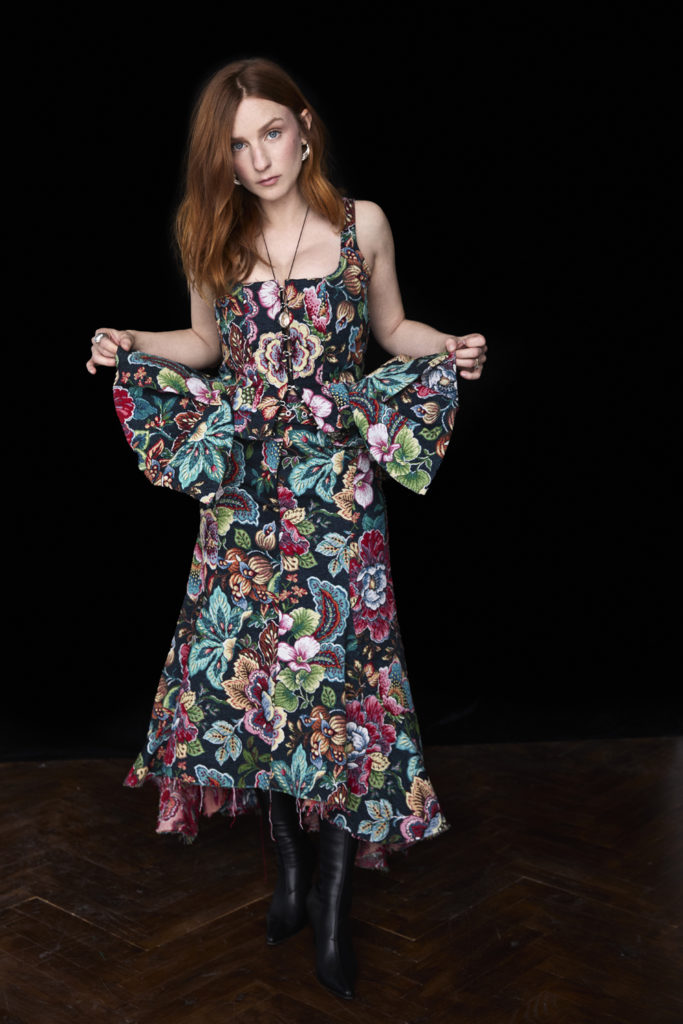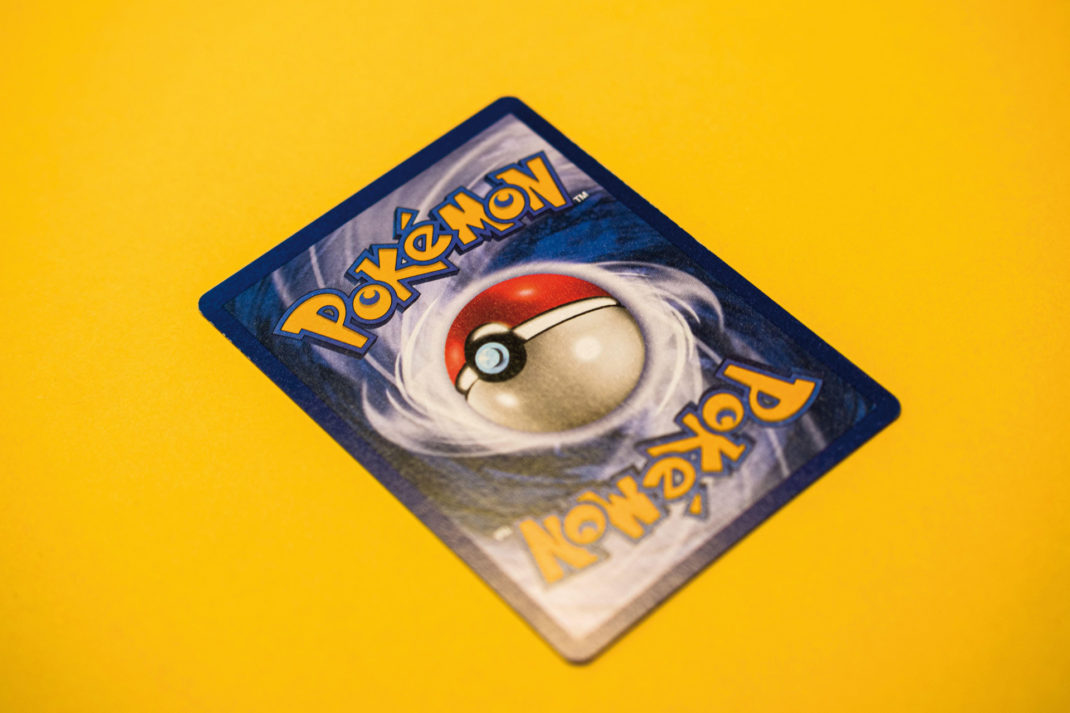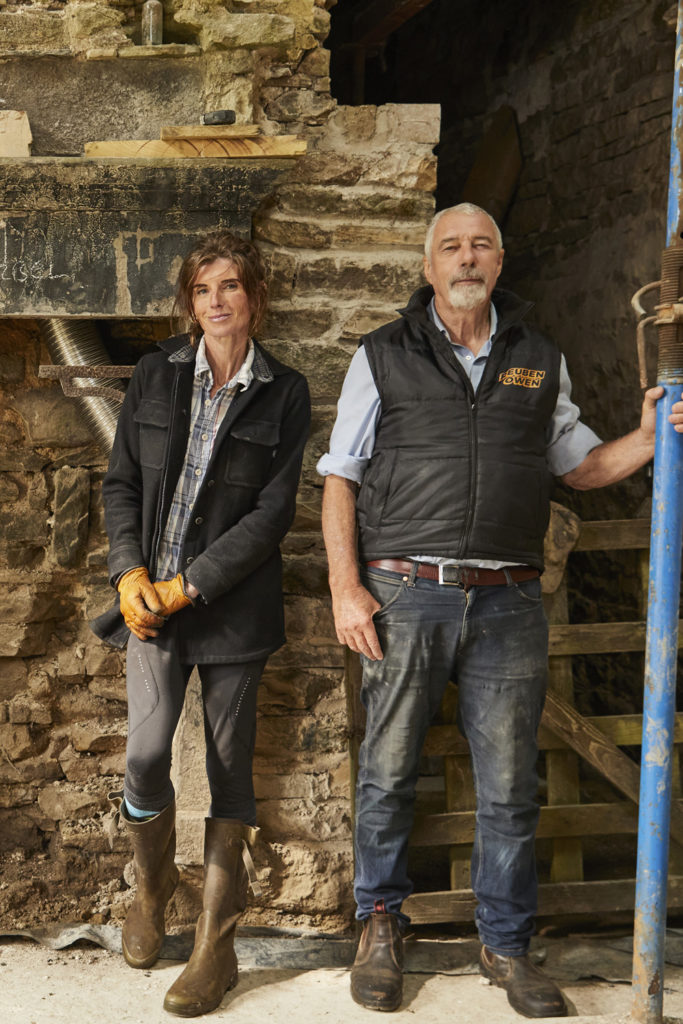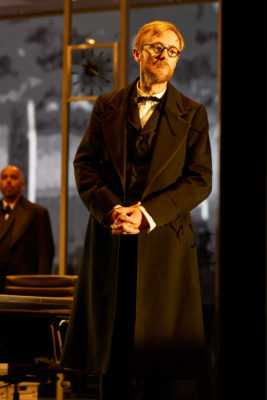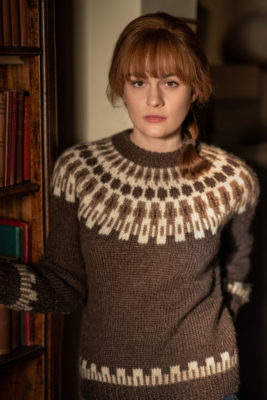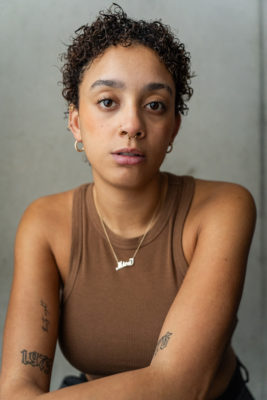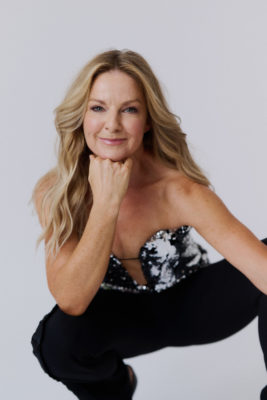The Tempest: Mason Alexander Park On Preparing For Ariel
By
4 months ago
The Tempest is running until 1 February 2025 at Theatre Royal Drury Lane
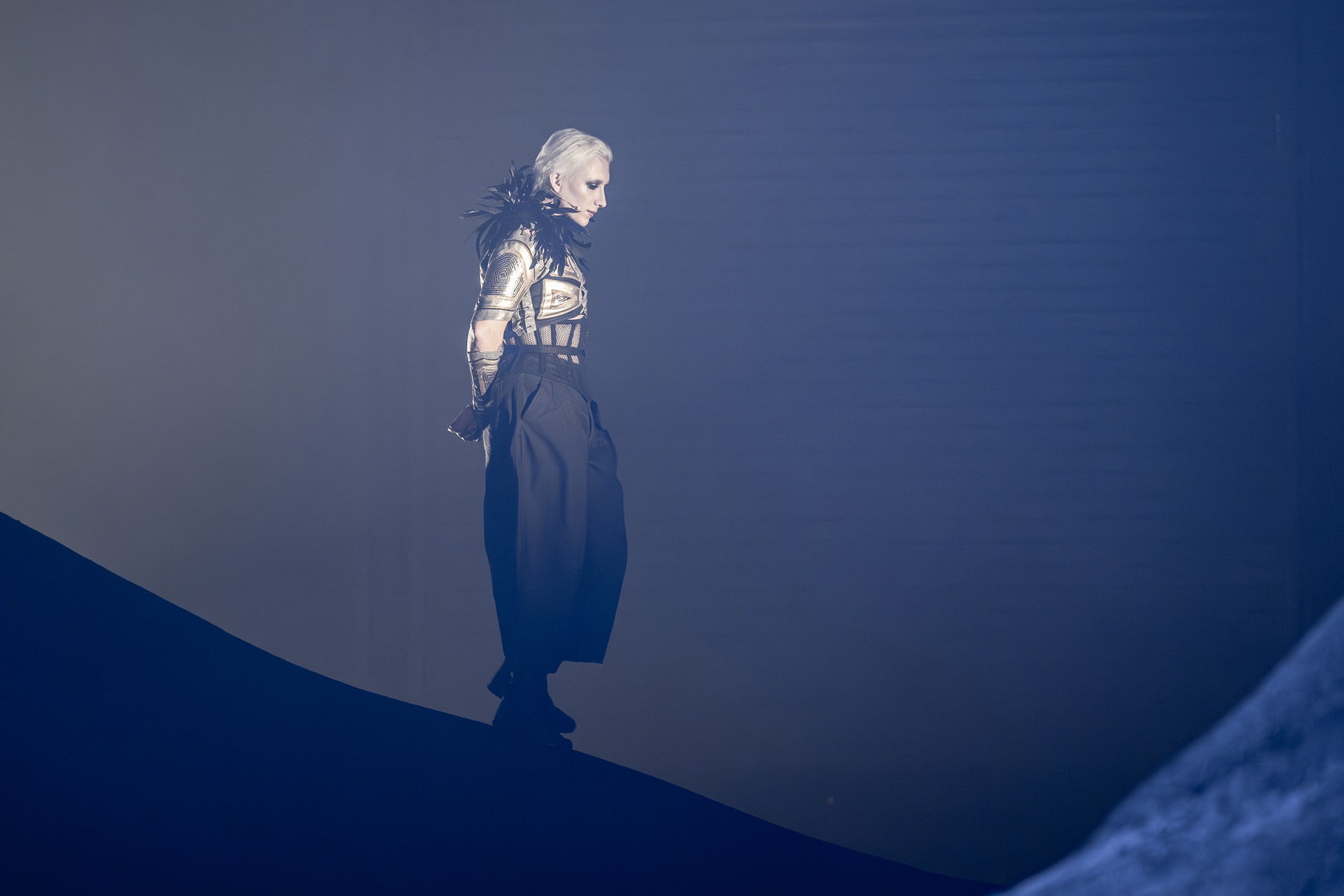
Jamie Lloyd’s The Tempest has officially opened at Theatre Royal Drury Lane, starring Mason Alexander Park in their first ever Shakespeare performance. ‘Until this process, I never thought that I was good enough [for Shakespeare],’ they tell C&TH. We sat down with Mason amid rehearsals to hear all about the process.
Interview: Mason Alexander Park On The Tempest
Hi Mason, thanks for joining me today. You’re about to star in The Tempest at Theatre Royal Drury Lane. How is that going at the moment?
It’s going really well. We’ve just finished week two of rehearsals for The Tempest. It has been one of the most inspiring experiences I’ve ever had in a rehearsal process. It’s just really exciting to get to be a part of something that feels so refreshing and childlike and exciting.
Can you give us an introduction to the production and interpretation of The Tempest it deals with?
Well, of course, The Tempest is a play about Prospero [Sigourney Weaver], who is a magician, a sorcerer, who lives on an island with her daughter, Miranda [Mara Huf]. They were sent there in a very shoddy little boat after they were thrown overboard by three people that were very close to Prospero – one of them her brother. So the story is birthed out of an act of usurping, and Prospero spends the play essentially enacting her revenge on people who do wrong to her and her daughter.
I play Ariel, who is a spirit of the island, who Prospero found imprisoned in a cloven pine tree by a witch who had recently passed away. Prospero and Ariel develop a very co-dependent relationship that’s based on Ariel doing tasks and performing magical feats for Prospero in exchange for their freedom. When the audience meets the play, it’s quite intense. It all begins with this gorgeous shipwreck – this storm, this tempest – which brings all of the people who belong to Prospero to her island, and the play goes on from there.
It’s a story of revenge, a story of forgiveness. It’s really, really fun and silly, but incredibly dark in so many places. It’s this beautiful amalgamation of so many things, which I think is what makes the play feel more human – and extra magical. It’s quite simplistic in its structure and form, but it really allows you to just fly off.
How would you describe your Ariel?
I came into this process as a blank slate, really. Not only did I not know what Jamie [Lloyd, director] was going to do with it, but I also didn’t know how Sigourney was going to approach it. So much of Ariel’s existence is in relation to Prospero; their relationship is incredibly symbiotic. So a lot of that, we built together, and I wanted to be malleable to that. I didn’t really want to come in with a super strong idea of who my Ariel was going to be, if that was going to be in contrast with what we were trying to accomplish in the room. What we’re finding now is really interesting and different and exciting, because the character can go so many ways. They essentially are living a life of service. This promise of freedom is dangled in front of them throughout the play, and you can play that in so many different ways, depending on the relationship that you have to the person that holds that carrot. And so as mine and Sigourney’s relationship is becoming clearer in real life, it’s given us a lot to work in the play. It’s really helping me identify what my Ariel is like.
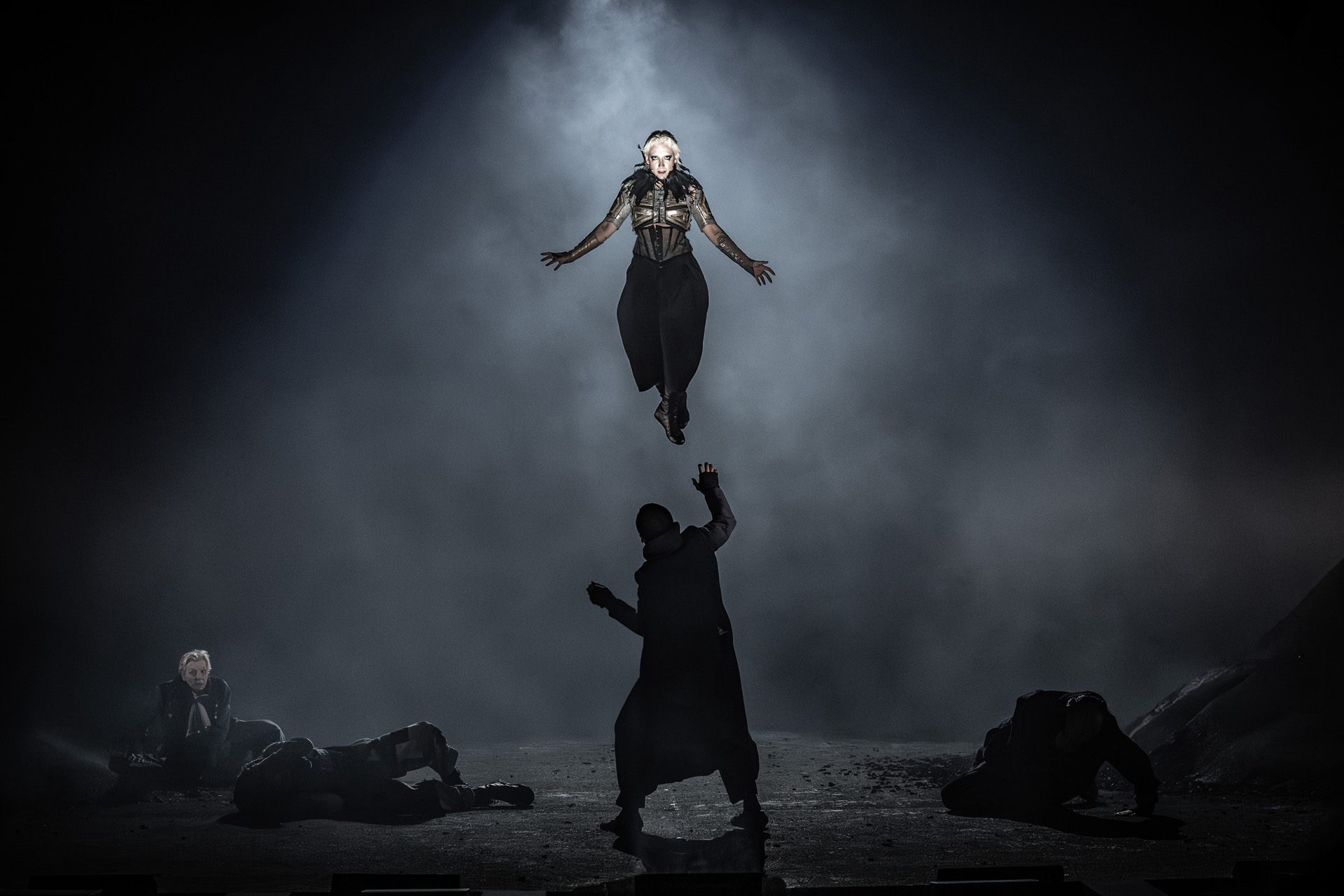
Mason Alexander Park (Ariel) in The Tempest. (© Marc Brenner)
Is there anything special you do to get into character during rehearsals at the moment?
No, no, no. One of the more beautiful things about Jamie’s process as director is that – at least in this show – none of it is with performance in mind. We’re not thinking about where the audience is in these first few weeks. So much of it is about the art of discovery and trying things in the moment. So I’ve kind of been showing up as myself and really digging into the text and seeing what that does first. That’s been such a great starting point. It also makes it really easy to come in and out of this process, and come in and out of the world. You just have to be present, to listen, and so much of the work magically starts to happen.
So I haven’t had the need to do anything in particular process wise, except for knowing my lines and showing up. Jamie had us all come in off book, which I’ve never had to do for a job, and it’s one of the more liberating things with this process. We’ve been able to discover so much more and get so much deeper in the first two weeks because of it.
What has it been like to work with Sigourney?
Just remarkable. It’s the most special thing in the world. I grew up watching her performances, and being so moved and galvanised by her talent. When Jamie told me that was who he had for Prospero, and asked if I wanted to do it, I would have said even if I had one line. Just to be able to be in a room with someone who has accomplished so much and worked so hard throughout their career. The amount that you learn from watching people at the top of their game is priceless. It’s not something you can get at drama school.
I’m just really grateful that not only is she a wonderful performer, but that she’s a wonderful person. It’s made this whole thing just easy and inviting. I think people are really going to be moved by her performance in the show. So many times, just in the rehearsal process with no audience, she has already made me feel and hear the words in a way that I’ve never really heard before.
Not long to go now! How are you feeling about audiences being let into what sounds like quite a magical interpersonal experience?
I’m really looking forward to it. The venue is stunning, and the idea that we get to do Shakespeare there 50 years after his last play was performed there – which was also The Tempest – is really exciting. It’s historic in many ways, and I’m really looking forward to getting to be in that space and seeing how it shifts the storytelling and how audiences react to it. I’m very grateful to have a debut in Shakespeare in this particular production.
It’s obviously an amazing Shakespearean play. Are you a fan? Do you have a favourite?
I’ve always had an appreciation for Shakespeare. I was never a scholar. I grew up in America, and we read his plays in English class, not just in drama school. I remember us reading Romeo and Juliet and moving on to some of the more complicated ones as I got older. But I never necessarily found it remarkably accessible. Until this process, I never thought that I was good enough. I think that’s such an accurate thing: to psych yourself out of certain kinds of work and certain kinds of theatre because you don’t think that you have a skill set for it. And sometimes all it takes is someone going, ‘No, no, you do’.
When you’re studying to be an actor, there’s so much focus on getting things right and on the legacy of things that it can scare people away from even trying, because they go, ‘Well, I wasn’t one of those people that read all of Shakespeare’s plays and knows everyone by heart, so I couldn’t possibly do one of the shows.’ But when you really think about where all of those stories came from, where they started, the people that were performing them, it’s remarkably accessible. It was meant to be a theatre that was experienced by every kind of person and every kind of actor.
I’m really happy that I’m reconnected with that level of play about it, because it’s actually opening me up to the possibility of doing more Shakespeare, whereas at first, when I said yes to this, I was like, ‘Oh, it might be a one off. I could be so shit that I won’t ever want to do it again!’. But now I’m like, ‘no, actually, I think I understand what’s happening! I don’t feel behind anymore!’. That’s such a liberating feeling. So who knows, I’ll have to get back to you on that one.
You’re no stranger to the theatre more widely. What has been your favourite project to date?
I’d have to say it’s a tie between the last project that I did and one that I did about seven or eight years ago. I was very fortunate to do Cabaret on the West End last summer for a couple of months, and that was one of the most remarkable experiences I’ve ever had. I was very lucky that I got asked to be a part of it. It was my West End debut, in one of my favorite roles in theatre history, if not the number one role for me. That show was one of the reasons I became an actor. I saw a production on VHS when I was still in school and realised that not only is there room for interpretation and reinterpretation in such abstract and drastic ways, but there’s also room for me as a queer person and as a trans person in leading roles. Seeing an androgynous, gender non conforming, ethereal actor play that role shifted so much of my own personal relationships with how I fit into this business. It really made me feel like there was a place for me as a serious actor, not just as a side character in some story.
So doing Cabaret and doing Hedwig and the Angry Inch – straight out of school, we did the first Broadway national tour – are two of the most important full circle moments for me. They were the two shows – three if you include Rocky Horror – I came across at a decision in my life. Whether I would continue pursuing acting, whether I was going to go to school and study, or whether I was going to stay in Los Angeles and be a television actor. I’m so glad that I chose to go off and study acting. I feel like the gift of that was then being able to play those roles.
Was it daunting to perform a role you consider your dream role?
I don’t think daunting. I don’t know what’s wrong with me. There seems to be something missing in a lot of my thought processes about things, because people always ask me if I get nervous or if I’m scared, or if I’m worried about certain things. Even with the pedestal that I put them on, I’ve never felt that. I’ve never been worried about disappointing people or about not being good in that capacity. I think it’s because I just love those characters so much that so much of the fun is from doing my version of it. I’m never really thinking about comparisons or anyone else’s experience, because it’s for my inner child.
I think it helps that both of those roles were roles I was so moved by and changed and excited to play, that I just was thrilled to get to do it. It felt like the greatest gift in the world, like I was invited to play in the best playground imaginable. I’m still so grateful for both of those experiences. They’re probably two on a very short list of roles that I would ever return to multiple times, because it’s just pure, unadulterated joy. Zero fear involved.
Who is a co-star you learned the most from?
You learn so many tiny little things from everyone. Every single person. Even those you don’t necessarily act opposite of, but they’re in other scenes, and maybe you watch them in rehearsal. Even just the way certain people show up and start stretching! You make mental notes up, and they sort of create this collage of other artists’ processes, and other ways that you can do the art of doing this. I find that it’s really hard to pinpoint a particular person or thing, because they’re really subtle things that you carry with you. I think I connect most closely with the people that still have a child-like wonder about things. With people who don’t take it so seriously that it makes it impossible for you to have fun in the process. Every single person that I’m drawn to in this business has a great sense of humor.
One amazing actor I worked with is Euan Morton. He was the original Boy George in the Taboo musical, and is someone that I really looked up to when I was younger. I loved Taboo and I loved that album, and Euan has one of the most gorgeous voices in the theatre – period. He came in for the Hedwig and the Angry Inch tour and I was his alternate. He was just ridiculously silly, and his silliness put everyone else at ease. He really took the time to connect with me, to show me graciousness, and he taught me a lot about how to treat my own understudies. It felt like a team effort with him. I think about him every time I’m in a show with understudies and there’s an opportunity to get them on so that their family and friends and agents can see them perform. It’s something you don’t necessarily think about unless you’ve been an understudy or have worked really closely with one, but it’s something that comes naturally to me now.
Any roles in the pipeline that you’re excited about? (If you’re allowed to tell us!)
After The Tempest, I guess the next thing people will be able to see me in is the next season of The Sandman on Netflix. That is really exciting; we have been working very hard on that show for what feels like a lifetime over the last few years. Other than that, I’m in the process of slowly defining what the next few projects are. So I can’t really talk much more specifically beyond The Sandman, but I am hoping that next year I’ll get to do some theatre and some more television and film, so we’ll see how it goes!
WATCH
Mason Alexander Park stars as Ariel in The Tempest, running until 1 February 2025 at Theatre Royal Drury Lane (Catherine St, London WC2B 5JF). Tickets can be purchased at lwtheatres.co.uk

